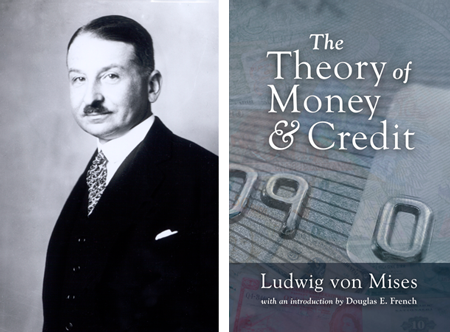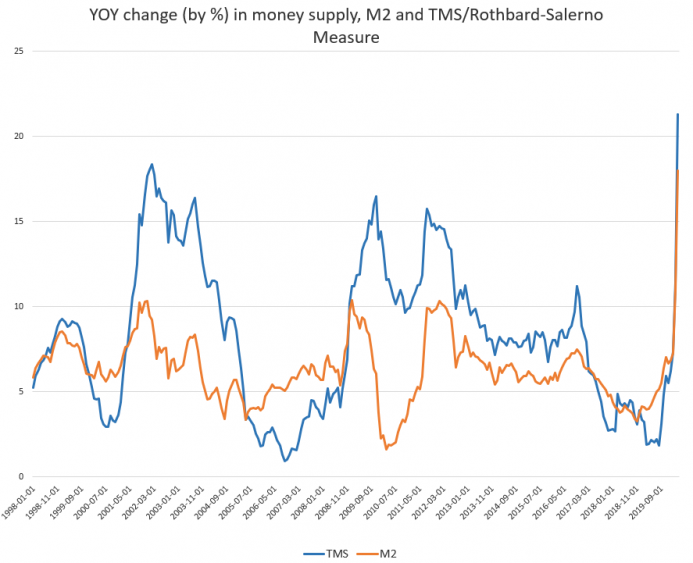Over the years, one of the most common trump cards used to justify government treating people differently, rather than equally, has been the word need. And when used to override individuals’ ownership of themselves and what they produce, its usage has created confusion rather than clarity. In public discussion, “need” has increasingly morphed into one of its synonyms—essential, as in “essential jobs.” But it still suffers from many of the same analytical problems. “Need” has the logical disadvantage of lacking a clear meaning. But that is also its biggest political advantage, because careful thinking is the enemy of inappropriate policy. The same is true for government determination of essential jobs. “Need” implies agreement on what and how extensive the need is.
Topics:
Gary Galles considers the following as important: 6b) Mises.org, Featured, newsletter
This could be interesting, too:
Nachrichten Ticker - www.finanzen.ch writes Die Performance der Kryptowährungen in KW 9: Das hat sich bei Bitcoin, Ether & Co. getan
Nachrichten Ticker - www.finanzen.ch writes Wer verbirgt sich hinter der Ethereum-Technologie?
Martin Hartmann writes Eine Analyse nach den Lehren von Milton Friedman
Marc Chandler writes March 2025 Monthly
 Over the years, one of the most common trump cards used to justify government treating people differently, rather than equally, has been the word need. And when used to override individuals’ ownership of themselves and what they produce, its usage has created confusion rather than clarity. In public discussion, “need” has increasingly morphed into one of its synonyms—essential, as in “essential jobs.” But it still suffers from many of the same analytical problems.
Over the years, one of the most common trump cards used to justify government treating people differently, rather than equally, has been the word need. And when used to override individuals’ ownership of themselves and what they produce, its usage has created confusion rather than clarity. In public discussion, “need” has increasingly morphed into one of its synonyms—essential, as in “essential jobs.” But it still suffers from many of the same analytical problems.
“Need” has the logical disadvantage of lacking a clear meaning. But that is also its biggest political advantage, because careful thinking is the enemy of inappropriate policy. The same is true for government determination of essential jobs.
“Need” implies agreement on what and how extensive the need is. However, needs are in the eye of the beholder and vary dramatically from person to person. That is why attempts to determine how much of something is needed never seem to come to the same answer (e.g., how many calories we “need” or how much money is “needed” to live in an area). When we don’t actually agree on its extent, “need” just pretends there is agreement anyway, which is hardly a reliable basis for making policy. The same is true for what jobs and products are essential. In some states, that list included lotto sales and liquor stores, because state revenues rank near the top of government essentials.
“Need” also tries to finesse away an essential aspect of economics—the fact that in a world of scarcity, choice is unavoidable. Calling something a need in contrast to other things falsely suggests that “there is no choice.” We must simply provide it. And that can be illogically taken to justify coercing others to provide that need. But we commonly trade off various “needs,” including between healthcare and other goods and services. Similarly, calling some jobs essential but not others substitutes government dictates for what citizens would choose.
In fact, the main difference between “need” and “essential” jobs in this sense seems to be that “need” is used to take resources that people have earned and give them to people and purposes that they did not choose, while lockdowns exempting only “essential” jobs prevent others from being productive and earning their incomes by benefitting others in the first place.
“Need” also relies on all-or-nothing thinking, in which one thing is categorically more important than others, when the relative values people place on different goods depend greatly on circumstances and preferences. One could assert that food is categorically more essential than sleep, but many of us disagree when our alarm goes off in the morning. In fact, the vast majority of our choices are marginal ones between somewhat more of one thing and somewhat more of other things, not between categorical needs and other things, or categorically essential jobs and categorically nonessential jobs.
Such an approach also lets politicians trumpet how much they are “for” something, without having to carefully consider the costs. With respect to COVID, the governing classes are all are for saving lives today, but too few seem to ask how many lives will be sacrificed via other mechanisms and in the future (via increasing poverty, depression, deferred healthcare of other kinds, among others) as a result.
The mirage of centrally planned “solutions” also illustrates a failure to think in marginal terms. Those who prescribe a planning cure for everything ignore the fact that markets and the prices they generate are the only way we accurately discover people’s willing tradeoffs. When government short-circuits such market processes, it makes that crucial information unknowable.
“Need” has long been a rhetorical garnish to justify the coercion of those who disagree about the extent of those needs. “Essential” is just the latest version, with similar disabilities. And we must remember that the only way we can ultimately help individuals meet their needs and accomplish what they find essential, without infringing on others’ rights, is freeing them from the power others have to dictate to them, so they can make whatever voluntary arrangements satisfy them better. Government solutions that override voluntary arrangements cannot provide that as well, however many times we invoke the words “need” and “essential” as a smokescreen.
Tags: Featured,newsletter








